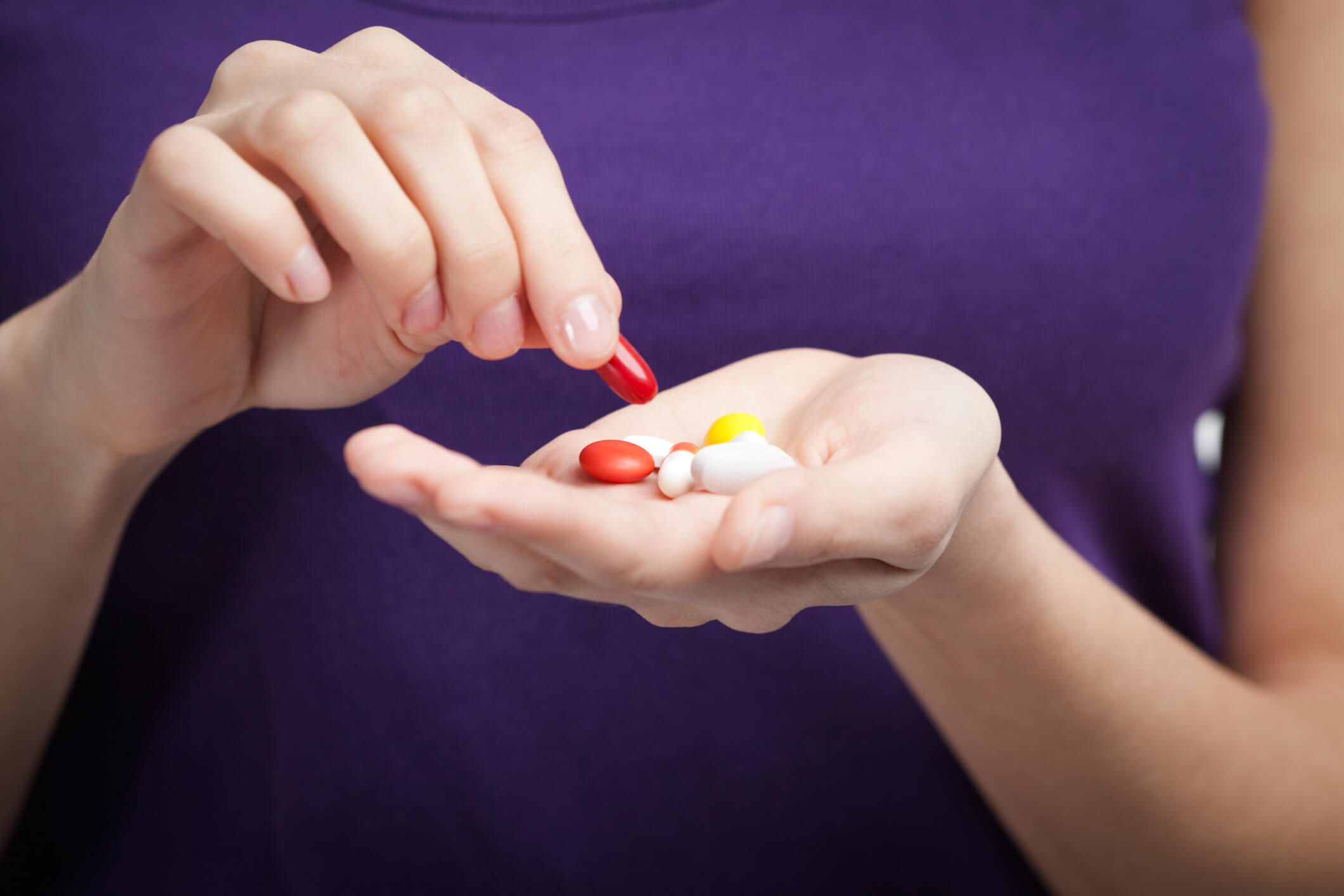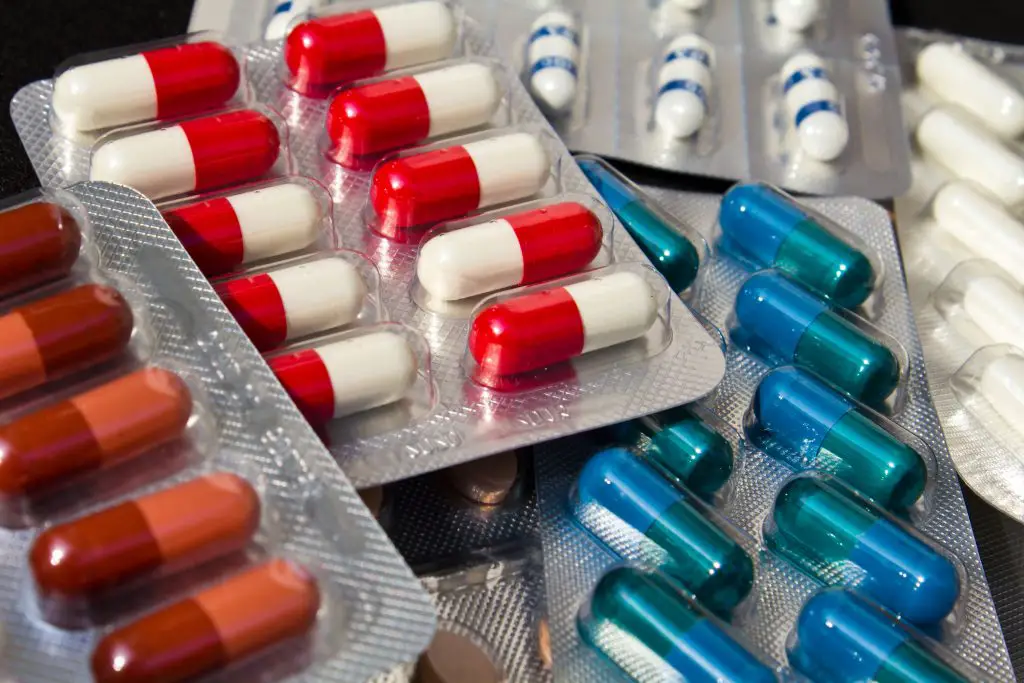Can You Take Probiotics and Antibiotics at the Same Time?

As an affiliate, we may earn a commission from qualifying purchases. We get commissions for purchases made through links on this website from Amazon and other third parties.
People are often unsure about what to do when they need to take antibiotics and probiotics.
When you’re prescribed antibiotics, it’s important to take them as directed in order to cure the infection. But what should you do about probiotics? Will they interfere with the antibiotics and make them less effective?
It is a common misconception that you cannot take probiotics and antibiotics at the same time. In fact, there are many cases where taking probiotics and antibiotics together is recommended. Probiotics can help to restore the gut flora after taking antibiotics, which can help to prevent antibiotic-associated diarrhea.
How do antibiotics work?
Antibiotics specifically target bacteria, but a large number of the cells in your gut are actually made up of non-pathogenic, or “good” microbes. This means that antibiotics have the potential to wipe out a large portion of these good microbes as well as those that cause disease. In fact, current research suggests that antibiotic use is the major driver of microbiome dysbiosis or “bad” gut flora.
A healthy gut microbiome is critical for proper digestive function and an overall healthy body. A large number of pathways in the human body are dependent on this microbial environment, including immune system regulation, digestion, detoxification, metabolism, mental health, and more. Therefore taking probiotics and antibiotics at the same time can help to maintain a healthy digestive system.
In order for antibiotics to work against infection, they must first kill off the pathogenic bacteria in your body that are causing illness. As these pathogens die, though, non-pathogenic bacteria also become damaged.
This means that restoring a healthy gut microbiome after taking antibiotics is incredibly important for recovery and long-term health. Having a variety of different microbes in your gut provides the best opportunity to restore balance after taking antibiotics, which is where probiotics come into play.
What are probiotics and antibiotics and how do they work together
Probiotics and antibiotics are two types of medicine that work together in the body. Probiotics are bacteria that help keep the gut healthy, while antibiotics kill harmful bacteria. Antibiotics can also kill the good bacteria that probiotics provide, so it’s important to take them together to get the most benefit.
Sometimes, taking both probiotics and antibiotics together is the best way to treat a condition. For example, people with certain stomach problems are more likely to have diarrhea after taking antibiotics. The good bacteria in probiotics can help prevent or reduce this problem.
Both probiotics and antibiotics come as pills, liquids, or powders that you take by mouth. They do not work better together if you take them at the same time, but it doesn’t hurt to take both. You can also take probiotics and antibiotics together as part of a bigger treatment plan that may include other medicines or changes in diet or lifestyle.
The benefits of taking probiotics while on antibiotics
It’s important to take probiotics while on antibiotics in order to maintain the balance of good and bad bacteria in your gut. Antibiotics can kill both the bad and good bacteria, leaving you susceptible to infection. Probiotics help replenish the good bacteria, keeping you healthy.
Claims:
- Taking probiotics while on antibiotics can help to reduce the side effects of antibiotics.
- Helps with intestinal problems caused by antibiotics.
- Can cure diarrhea caused by taking antibiotics.
How to find the right probiotic for you
The human body is a complex ecosystem, and the gut contains a diverse range of bacteria that can have a significant effect on health. These trillions of tiny organisms play an important role in digestion, metabolism, immune system response, and mental well-being.
A growing number of studies have found links between gut bacteria and common ailments as varied as obesity, diabetes, autism spectrum disorders (ASD), depression and anxiety. In fact, one recent study from McMaster University suggests that certain strains of probiotics may help alleviate symptoms for those with ASD by reducing inflammation in the brain.
The question then becomes how do you find the right probiotic? The answer lies in understanding what kind of bacterial balance your body needs to maintain good health: some people need more of one type of bacteria, while others need more of another.
One to watch: Saccharomyces Boulardii
Saccharomyces Boulardii is a well-studied strain of yeast that has been shown in clinical studies to help with antibiotic-associated diarrhea and pouchitis (inflammation caused by an ileal pouch in the gastrointestinal tract, that can occur after surgery).
According to gastroenterologist and director of the inflammatory bowel diseases center at Columbia University Irving M. Cohen, MD, “Clinical studies have shown [Saccharomyces Boulardii] to be safe and effective for preventing diarrhea in patients taking antibiotics and for reducing the recurrence of pouchitis. The probiotic also assists in repopulating the gut with healthy bacteria.”
Although more clinical studies are needed, Saccharomyces Boulardii is already widely used in Europe and Asia to treat diarrhea associated with major causes of mortality such as antibiotic-associated diarrhea or Clostridium difficile infection.

Side effects of both probiotics and antibiotics
It is important to know the side effects of both probiotics and antibiotics.
Probiotics are beneficial for our health, but there can be some adverse reactions. Antibiotic drugs are helpful in curing infections, but they also give rise to serious side effects.
We will look at what these two treatments do to your body and how they work on different parts of the immune system. We will then compare the pros and cons of each treatment so that you can make an informed decision about which one may be best for your needs. First, let’s talk about how these treatments affect the gut microbiome…
Side effects of probiotics
There have been very few scientific studies about the side effects of common probiotics. Most of what we know comes from consumer reports. In a large review study, researchers found that in about 10% of cases, people who used probiotics had mild digestive issues such as bloating, gas, and diarrhea [1]. In another review, as many as 27% of people who used probiotics experienced gas and bloating [2].
In the case of Clostridium difficile infection, a serious side effect can be developing colon inflammation. However, it is not clear whether the C.difficile was already there prior to taking the probiotic or whether it was caused by the probiotic itself. More studies are needed to clarify this risk [3].
What we do know is that some bacteria may have antibiotic resistance and pass it on to other bacteria in the microbiome. Probiotics have been known to have multiple effects on the immune system as well, including causing allergies and worsening asthma.
Side effects of antibiotics
Antibiotics kill good bacteria as well as the bad. In fact, their purpose is to limit bacterial growth, which means they can cause any number of side effects from diarrhea and yeast infections to fatalities. Antibiotics have been linked to a wide variety of complications, including liver disease and a reduction in blood cell production.
In a 2009 study, researchers found that taking antibiotics for acne was linked with a higher risk of developing Crohn’s disease [4]. In another study, scientists found that antibiotic use increases the risk of hospital-acquired pneumonia in children [5].
Studies have also shown an increased risk of Clostridium difficile infection from antibiotic use [6]. In a meta-analysis of 13 studies, people who took antibiotics were 1.5 to 3.2 times as likely to develop Clostridium difficile infection as those who didn’t take antibiotics [7].
Some well-known side effects of antibiotics include yeast infections and diarrhea caused by the disruption of gut microbiota. Antibiotics can also cause severe diarrhea, called C. difficile colitis, which may be life-threatening or result in permanent changes to bowel movements [8].
Tips for taking antibiotics and probiotics correctly
It is important to take antibiotics and probiotics correctly in order to get the most out of them. Here are some tips on how to do that:
1. Make sure you take your antibiotics exactly as prescribed. Do not stop taking them early, even if you feel better. Stopping too soon can allow bacteria to become resistant to the antibiotic, making it less effective next time you need it.
2. Take probiotics at a different time than you take your antibiotics. Probiotics work best when they are taken regularly, so try to find a time that works for you and stick with it.
3. Drink plenty of water while taking antibiotics. This will help flush them from your system and reduce the risk of side effects like an upset stomach.
4. Eat yogurt while taking antibiotics to boost your body’s defenses against infection with beneficial bacteria, which can be killed by antibiotics.
5. Talk with your doctor before you take any kind of supplement, including probiotics or other dietary supplements, while taking prescription medicines. Some may decrease the effectiveness of certain antibiotics and could potentially have other harmful interactions.
6. Don’t take antibiotics you don’t need. Many people often feel they have a viral infection, even if they do not, and demand an antibiotic from their doctor. Antibiotics work against bacteria only, not viruses, which are a separate type of infection.
In conclusion
You can take probiotics and antibiotics at the same time! In fact, taking probiotics while on antibiotics may help keep your gut flora healthy and reduce the likelihood of developing antibiotic-associated diarrhea.
As with all medication, it is advisable to consult with your doctor first and be prepared to experiment with the strain of probiotics to find what works for you.
References:
1. Cryan, J. F., & Dinan, T. G. (2012). Mind-altering microorganisms: the impact of the gut microbiota on brain and behavior. Nature Reviews Neuroscience, 13(10), 701-712.
2. Rao, M., & Duseja, A. (2015). Probiotics in health and disease: a review. Journal of Ayurveda and integrative medicine, 6(1), 7.
3. Rahimi, R., Nikfar, S., Abdollahi, M., & Djazayery, A. (2012). A systematic review of the reported side effects of probiotics. International journal of food sciences and nutrition, 63(8), 945-951.
A quick reminder ..
Probiotics.tips aim to provide the most up-to-date information, help, and advice for YOU to make informed decisions. If you are unsure or uncertain and require more clarity, please reach out to us and we will gladly come back and advise you as best we can.
The best means to reach us is via email at info@probiotics.tips or fill out the form on our Contact Us page – click here.
Probiotics.tips
About Us
Our goal is to empower you with concise probiotic guidance for a healthier gut. With expert advice, we provide the knowledge to improve your well-being and navigate the world of probiotics efficiently, ensuring you achieve optimal gut health.
- Can You Take Probiotics While Water Fasting?
- Does Fasting Help Microbiome Diversity and Functionality?
- Does Fasting Help Your Bowels
- Does Fasting Help Probiotics? Understanding Gut Health Benefits
- Does Fasting Help the Gut: Understanding the Impact on Digestive Health
Disclaimer
As an affiliate, we may earn a commission from qualifying purchases. We get commissions for purchases made through links on this website from Amazon and other third parties.
Check these out on Amazon








